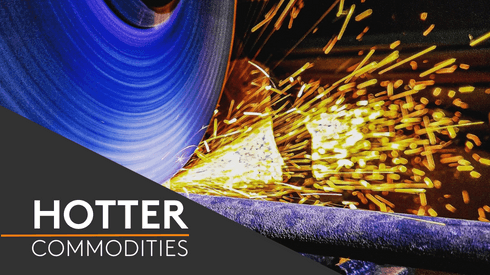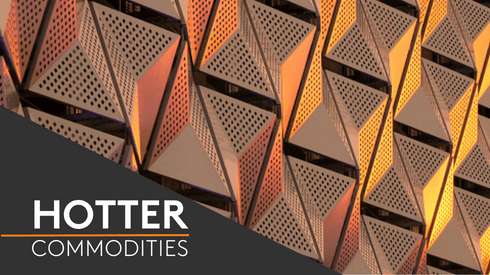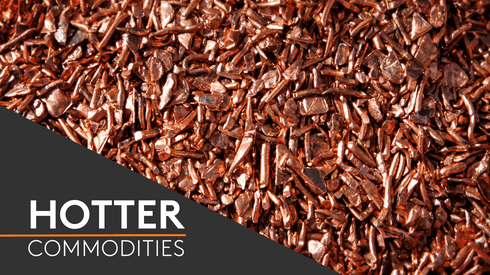Máximo Pacheco estimated that the large Chinese smelters source roughly 80% of their concentrate needs under long-term contracts, with the remaining 20% exposed to the spot market. But other smelters in more inland locations are exposed to the spot market to a higher extent, he noted.
“We continue to think that China is a relevant market for us, both in concentrates and in refined metal, and we will continue to expose ourselves both through our long-term contracts with regular customers, as well as in the spot market,” he told Fastmarkets in an interview on Monday April 15.
“I’ve heard a lot about the lack of competitiveness of many of the Chinese smelters, and I’ve heard a lot that, with today’s situation, it will be very difficult for them to compete. We also know that the industry requires new technologies, will have to deal with new environmental regulations and face geopolitical risks,” he said.
Get notified when Andrea Hotter publishes new articles and interviews on the natural resources sector. Receive the latest stories straight to your inbox.
“The concentrate market, and the map of producers and trade, will continue to evolve,” he added during the annual CESCO industry week in Santiago, Chile.
TCs are the fees mining companies pay smelters to have their semi-processed ore, or concentrate, turned into finished metal. Typically, tighter spot supply leads to a drop in spot TCs and RCs. Spot TCs have plummeted in recent months following a series of supply disruptions and lower than expected production.
Fastmarkets calculated the weekly copper concentrates TC index, cif Asia Pacific at $0.10 per tonne on Friday April 12, down from $2.30 per tonne the prior week, its lowest level on record.
The persistent tightness in availability of concentrates recently led China’s Copper Smelters Purchase Team (CSPT) to call for more production cuts.
Tightness in copper concentrate supply
Copper concentrate supply had already been tight for some time, but this became more noticeable when First Quantum was ordered to suspend production at its 350,000 tonne per year Cobre Panama mine due to a ruling by the Supreme Court of Panama.
A number of copper producers also unexpectedly lowered mine production guidance for 2024, adding to the tightening concentrate situation.
Meanwhile, the addition of major new smelting capacity in 2024 – starting with the expansion of Freeport’s Gresik smelter in Indonesia – made maintenance breaks, capacity curtailments and closures more likely, with operating costs starting to become untenable.
Pacheco told Fastmarkets that there is no magic solution to fix the tightness in the current concentrates market, but that innovation through technologies to change the way copper is produced, as well as improved acceptance of mining by communities, would significantly assist.
“There will be some changes in the way we produce copper, and we are working hard on R&D to really understand how we can innovate using technologies,” he said.
“At the same time, we need to be sure that we strengthen the legitimacy of mining. The world needs more copper, and therefore we also need society to support the way we do mining, understanding that we have learned a lot from our history,” he noted.
“Therefore, we must look for new ways of mining that can build the legitimacy and social license that society requires,” he said.
China sales
Codelco’s guidance for its own copper production in 2024 is 1.325 million-1.39 million tonnes, with the company having produced 1.325 million tonnes last year.
In 2023, Codelco reduced its spot refined copper sales into China due to production issues at its Chuquicamata complex and the closure of the Ventanas smelter, both in Chile.
The company will continue to sell copper into China this year, Pacheco noted, although he didn’t specify quantities.
“The spot market in China is one of the largest in the world, so Codelco is of course interested to continue participating in the market that has by far the largest demand in the world,” he said.
“Part of our commercial strategy is to expose ourselves to the regions where copper growth is coming over time. We also value long-term relationships through our regular contracts, but we are also looking at the flexibility that spot markets give us in terms of variability of production,” he told Fastmarkets.
“The spot market offers a level of flexibility buffer for our commercial strategy, so we will continue to use the spot market in that way,” he added.
According to Pacheco, the Chinese market was nonetheless “very strong” in 2023 amid ongoing growth in electromobility, including electric vehicles (EVs) and renewable energy, and is expected to remain “a very attractive market” this year too.
“China has been a positive, good surprise to all of us,” he said.
In Hotter Commodities, special correspondent Andrea Hotter covers some of the biggest stories impacting the natural resources sector. Sign up today to receive Andrea’s content as it is published.





